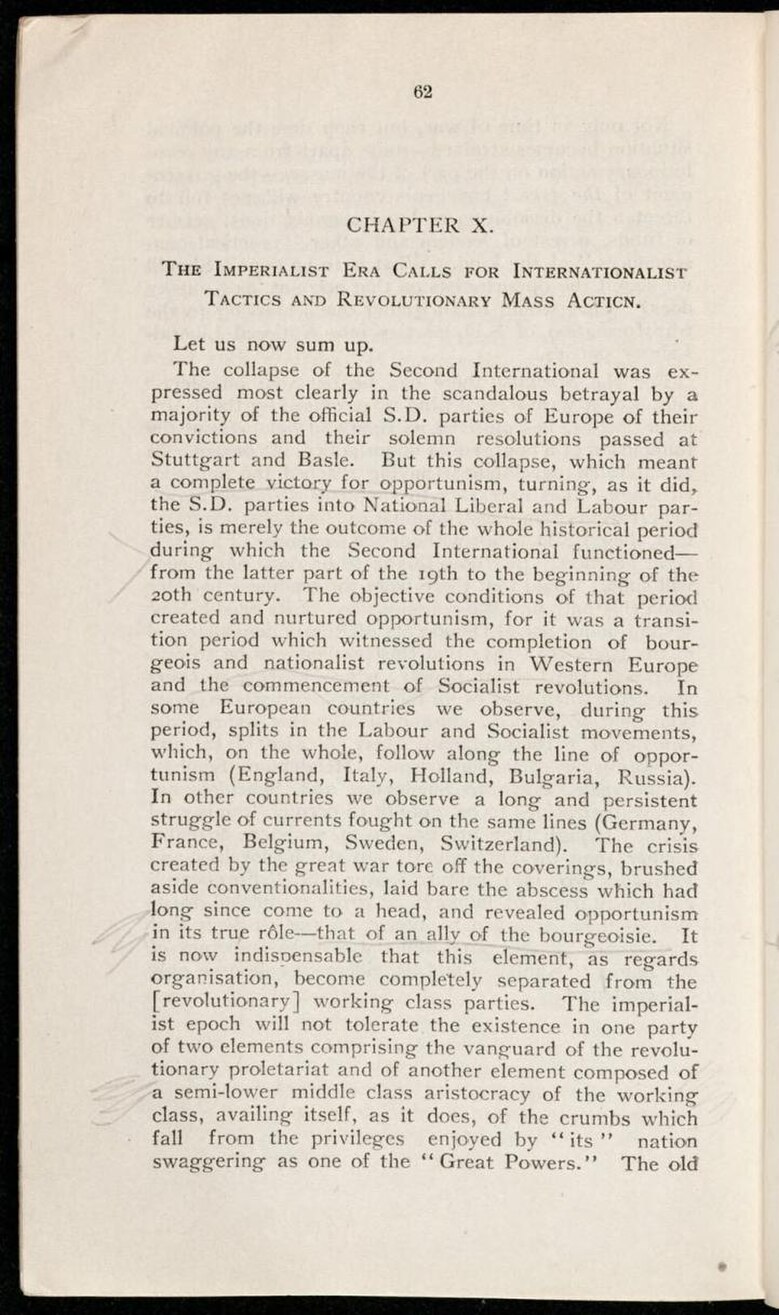62
CHAPTER X.
The Imperialist Era Calls for Internationalist
Tactics and Revolutionary Mass Acticn.
Let us now sum up.
The collapse of the Second International was expressed most clearly in the scandalous betrayal by a majority of the official S.D. parties of Europe of their convictions and their solemn resolutions passed at Stuttgart and Basle. But this collapse, which meant a complete victory for opportunism, turning, as it did, the S.D. parties into National Liberal and Labour parties, is merely the outcome of the whole historical period during which the Second International functioned—from the latter part of the 19th to the beginning of the 20th century. The objective conditions of that period created and nurtured opportunism, for it was a transition period which witnessed the completion of bourgeois and nationalist revolutions in Western Europe and the commencement of Socialist revolutions. In some European countries we observe, during this period, splits in the Labour and Socialist movements, which, on the whole, follow along the line of opportunism (England, Italy, Holland, Bulgaria, Russia). In other countries we observe a long and persistent struggle of currents fought on the same lines (Germany, France, Belgium, Sweden, Switzerland). The crisis created by the great war tore off the coverings, brushed aside conventionalities, laid bare the abscess which had long since come to a head, and revealed opportunism in its true rôle—that of an ally of the bourgeoisie. It is now indispensable that this element, as regards organisation, become completely separated from the [revolutionary] working class parties. The imperialist epoch will not tolerate the existence in one party of two elements comprising the vanguard of the revolutionary proletariat and of another element composed of a semi-lower middle class aristocracy of the working class, availing itself, as it does, of the crumbs which fall from the privileges enjoyed by "its " nation swaggering as one of the "Great Powers." The old
